Economics

Economics is the science describing the production and distribution of wealth. The undergraduate Economics program provides students with the theoretical and empirical tools to comprehend, assess and analyze the many pressing issues and problems of society in an economic context.
Thinking About Declaring an Economics Major?
Some career opportunities incude:
Economics Degree Requirements
Business Economics Degree Requirements
STM Economics Course Description
Economics Tenured and Tenure Stream Faculty
Loading...
Economics Term Faculty
Loading...
Economics Sessional Faculty
Loading...
English
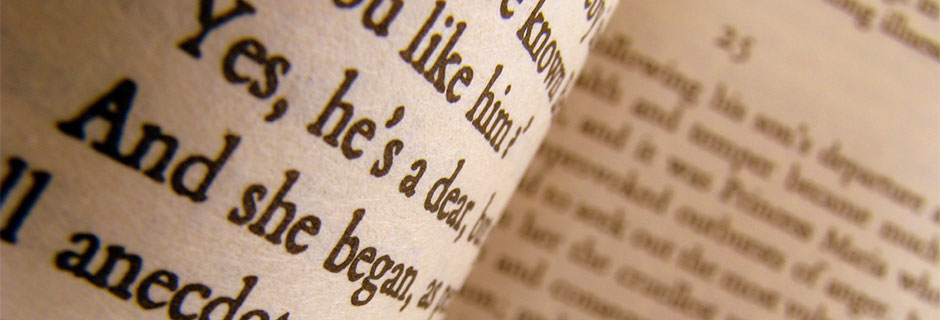
Examine the English literature of the world from a variety of critical standpoints. Research the interactions of literary, political, economic and intellectual culture. Gain a broader understanding of writing. Write poetry, fiction and drama. Edit literary works and journals. Explore timely and important issues through literature. Learn to communicate effectively. Analyze theatrical productions at Greystone and Saskatoon professional theatres.
Thinking About Declaring an English Major?
Some career opportunities include:
English Degree Requirements
STM English Course Descriptions
English Tenured and Tenure Stream Faculty
Loading...
English Term Faculty
Loading...
English Sessional Faculty
Loading...
English Emeritus Faculty
Loading...
History
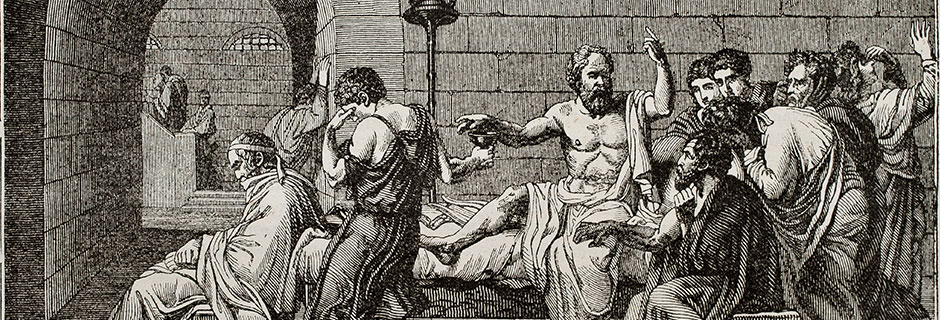
Historians and history students study the past to understand how and why change happens to individuals, societies and countries. Students engage the world through history and make sense of it, finding meaningful connections between the past, present and future. These connections embrace geography, culture, politics, society and the dynamics of change.
Thinking About Declaring a History Major?
Some career opportunities include:
History Degree Requirements
STM History Course Descriptions
Thinking About Declaring a Classical, Medieval and Renaissance Studies Major?
Some career opportunities include:
- Museum or gallery curator/director
- Teacher/professor
- Archivist
- Historian
- Prop designer
- Antiquities dealer
- Cultural interpreter
- Foreign affairs/diplomat
- Film researcher
- Historical site guide
History Tenured and Tenure Stream Faculty
Loading...
History Term Faculty
Loading...
History Sessional Faculty
Loading...
Languages, Literatures, and Cultural Studies
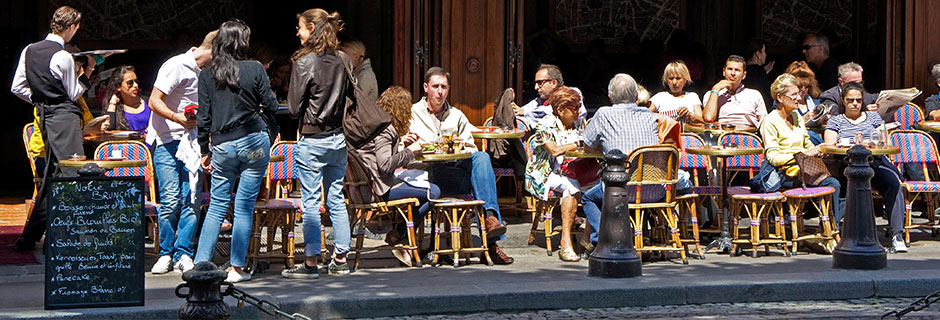
Explore the literature of other cultures in the original language and in translation. Learn another language and open the doors to understanding other cultures and civilizations. Travel and study abroad. Understand the international context of modern life in a multicultural society.
Thinking About Declaring a French or Modern Languages Major?
Some career opportunities include:
- Cultural events coordinator
- English as a Second Language teacher
- Foreign service officer
- Immigration officer
- International relations consultant
- International student advisor
- Librarian
- Researcher
- Tour guide
- Translator
- Travel agent
Languages, Literatures, and Cultural Studies Tenured and Tenure Stream Faculty
Loading...
Languages, Literatures, and Cultural Studies Term Faculty
Loading...
Languages, Literatures, and Cultural Studies Sessional Faculty
Loading...
Languages, Literatures, and Cultural Studies Emeritus Faculty
Loading...
Philosophy
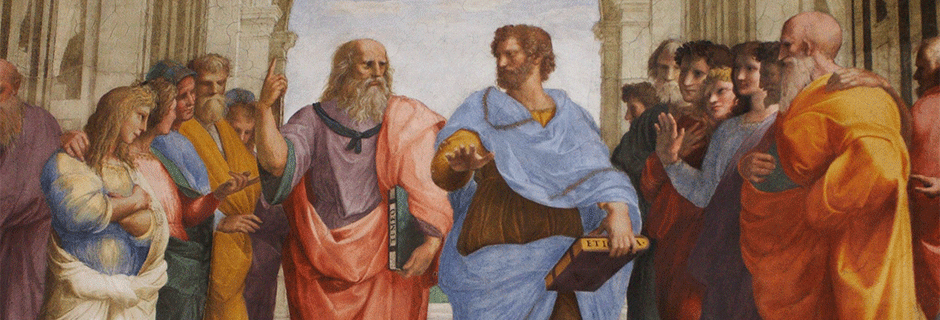
Some career opportunities include:
- Law
- Government and Public Policy
- Journalism and Media
- Education
- Non-Governmental Organisations
- Entrepreneurship
- Computer Science and Artificial Intelligence
- Comedy and Entertainment
- Ethics Consultant (in government, health, business, media, sport)
Philosophy Degree Requirements
Why Study Philosophy?
A journalist discusses reasons why the most valuable courses she took were philosophy courses in “Be Employable, Study Philosophy”, while the New York Times explores a trend towards more philosophy majors with its article “In a New Generation of College Students, Many Opt for the Life Examined.” For these articles and others, see http://www.apaonline.org/page/undergrad_resources
Who Studies Philosophy?
What do singer/song-writer Buffy Saint-Marie, longest-serving chief Justice of the Supreme Court of Canada Beverly McLachlin, Former Prime Minister Paul Martin, Pope John Paul II and Alex Trebek have in common? They all have degrees in philosophy. For a list of people from a wide variety of fields who have studied philosophy, see https://www.apaonline.org/page/whostudiesphilosophy
Is Philosophy Having a Moment?
Universities across Canada are reporting growth in interest in their philosophy offerings. Why is it that more undergraduates are choosing to spend four years studying an exacting, frequently frustrating, but sometimes deeply satisfying academic discipline? More than any other humanity subject, more than perhaps any other academic discipline, philosophy seems to match most successfully what might look like the seemingly incompatible concerns of young people today: the desire for material security, which has gotten a whole lot harder in the last couple of decades, and a deep-seated anxiety about the future of our world. https://www.universityaffairs.ca/features/feature-article/is-philosophy-having-a-moment/
Philosophy Tenured and Tenure Stream Faculty
Loading...
Philosophy Term Faculty
Loading...
Philosophy Sessional Faculty
Loading...
Political Studies
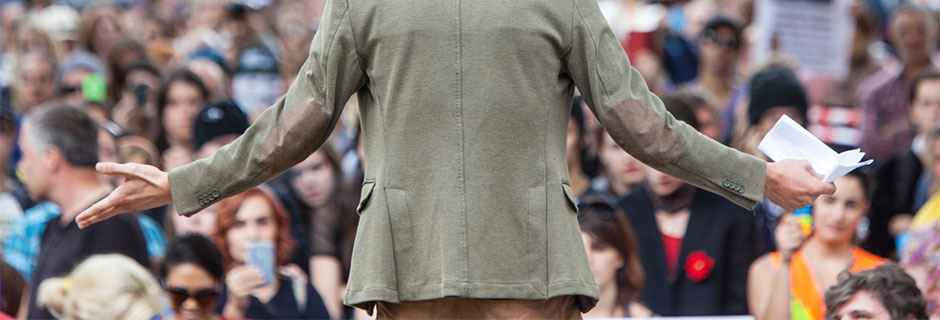
A traditional concern of a Catholic liberal arts college is to study the intersection of politics, justice and morality. It is a concern that is based on the traditional belief that politics is a branch of justice and morality and can only be understood and studied as such. Grounded in social justice and morally-based study, the aim of a political education is to develop good citizens of our own country and that of the world. This requires a basic knowledge of how societies are organized and governed, how power shapes human behavior, and how effective state institutions are in achieving the common or public good. It also requires that students in their commitment to social justice acquire the necessary skills to be responsible and effective citizens.
Being a good citizen involves an understanding of the centrality of an inclusive community to a moral and just politics, and how such a community can be fostered or undermined. This in turn requires that students be able to put the current political situation into a context – including a historical, developmental and systemic context – enabling them to understand how politics is integrated with other aspects of human existence in specific societies as well as throughout the world.
The St. Thomas More College Department of Political Studies sees itself as fostering good citizenship, empathy and a moral view of politics. The department is committed to teaching politics from the point of view of what it means to be a good citizen in pursuit of the common good, social justice and the shared vision of a flourishing humanity.
Members of the STM Department of Political Studies support and participate in the college’s Interdisciplinary Minor – Social Justice and the Common Good. Areas of teaching by STM faculty include:
- International human rights
- International conflict and conflict resolution
- Theories of state
- Citizenship and community building
- Justice and democracy
- Canadian human rights
- Multiculturalism
- Canadian politics and society
- Canadian political economy
- Canadian public law and policy
- Canadian foreign policy
- Comparative politics
- Contemporary political thought
Thinking About Declaring a Political Studies Major?
Some career opportunities include:Political Studies Tenured and Tenure Stream Faculty
Loading...
Political Studies Sessional Faculty
Loading...
Political Studies Emeritus Faculty
Loading...
Psychology
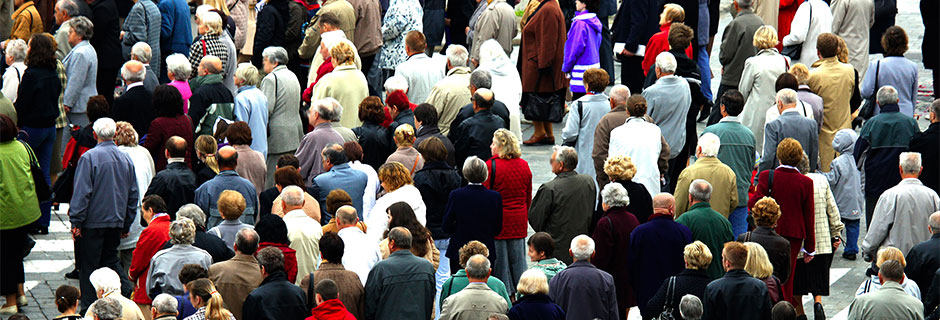
Psychology is the study of behaviour and how it affects our lives. With the complexity of our modern world, psychologists fill an increasingly important role in dealing with human problems.
Some career opportunities include:- Top- and mid-level management and administration
- Sales
- Social work and not-for-profit services
- Other management occupations
- Labor-relations, personnel and training
- Administrative positions
- Real estate, business services and insurance
- Marketing
Psychology Tenured and Tenure Stream Faculty
Loading...
Psychology Term Faculty
Loading...
Psychology Sessional Faculty
Loading...
Psychology Emeritus Faculty
Loading...
Religion and Culture

The Department of Religion and Culture at St. Thomas More College (STM) delivers the Religion and Culture Program for the University of Saskatchewan. Over 80% of the world’s population identifies as religious. Religious beliefs and practices shape the histories, cultures and perspectives of individuals and entire civilizations. In view of the role religion plays in shaping global citizens, religious literacy is of vital importance. At STM, we offer a range of courses encompassing both Asian and Western religions (Hinduism, Buddhism, Judaism, Christianity, Islam), as well as thematic courses (e.g., Religion and Ecology, Life After Death in World Religions, Religion and Politics). The academic study of religion is vital to STM’s academic mission.
Quick facts
- 3 or 4 year degree or minor
- Full or part-time program
- M.A. Program
- You can enter this program directly from high school
- You can begin this program off-campus
What you will learn
You will learn about religious approaches to some of humanity’s most timeless and urgent issues, such as the meaning of life and death, relationships, morality, gender and sexuality, ecology, social justice, war and peace. To understand how religions shape human experiences, societies and cultures you will a range of world religions and religious experiences within cultural, historical, ideological, and current settings.
The Department of Religion and Culture at STM contributes to three distinct degree programs:
Our courses also contribute to several minors and certificate programs:
Faculty
You will benefit from the diversity within our department, which features a group of scholars trained in the relevant languages, histories, philosophies and social scientific approaches. Specialists in Asian and Western religions and cultures provide diverse perspectives on systems of faith and religious practice throughout the world.
Hands-on learning
Alternate methods of learning such as visits from guest lecturers, community service learning, and site visits to local religious institutions are featured to encourage students to explore the religious diversity within our local community.
Study abroad
You can take advantage of our unique study abroad opportunities and immerse yourself in the cultures you are studying.
Thinking About Declaring a Religion and Culture Major?
Some career opportunities include:
Religion and Culture Degree Requirements
STM Religious Studies Course Descriptions
Explore related programs
Archaeology and Anthropology
Some career opportunities include:
Government sector, working for departments such as health, environment, and cultural resources, social services.- Non-government, social services, and business sectors, working for a range of private companies and organizations focused on, for example:
- research with Indigenous communities and agencies
- social service delivery
- social and cultural policy and program development and implementation
- health and environmental issues
- social and cultural impact assessment
- counseling
- urban planning
- Communications
- Education, as teachers, professors and researchers
- Museum and archives curator
Archaeology and Anthropology Degree Requirements
STM Archaeology and Anthropology Courses
Religion and Culture Tenured and Tenure Stream Faculty
Loading...
Religion and Culture Term Faculty
Loading...
Religion and Culture Sessional Faculty
Loading...
Religion and Culture Emeritus Faculty
Loading...
Sociology

Sociology is the study of human social life, focusing on developing an understanding of changes in social structure and human interaction on an individual, societal and global level. Students in Sociology learn to analyze social issues and think critically about the world around them.
Thinking About Declaring a Sociology Major?
Some career opportunities include
Sociology Tenured and Tenure Stream Faculty
Loading...
Sociology Term Faculty
Loading...
Sociology Sessional Faculty
Loading...
Sociology Emeritus Faculty
Loading...
